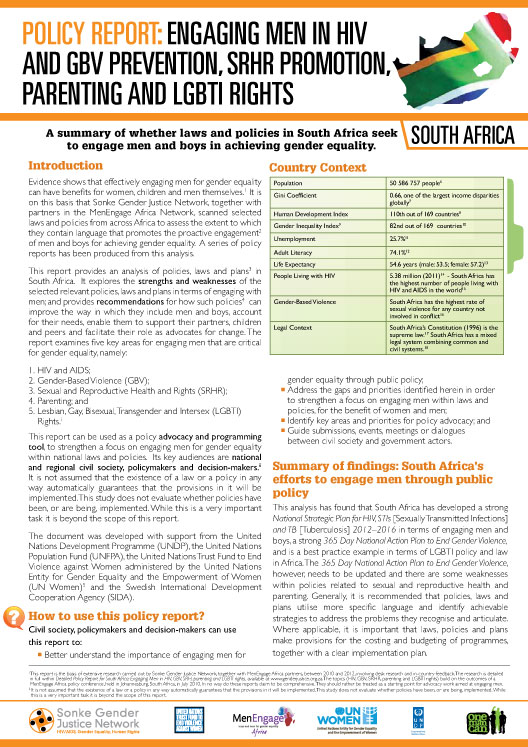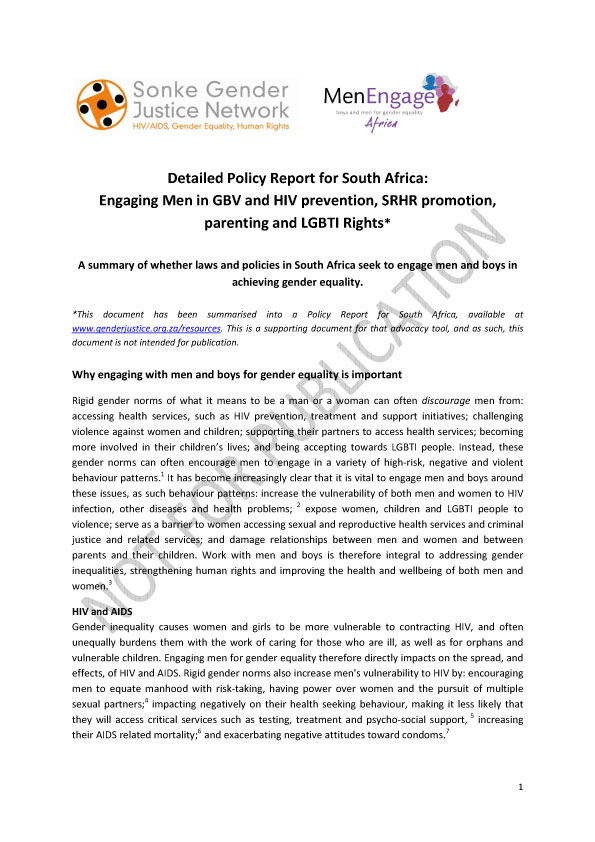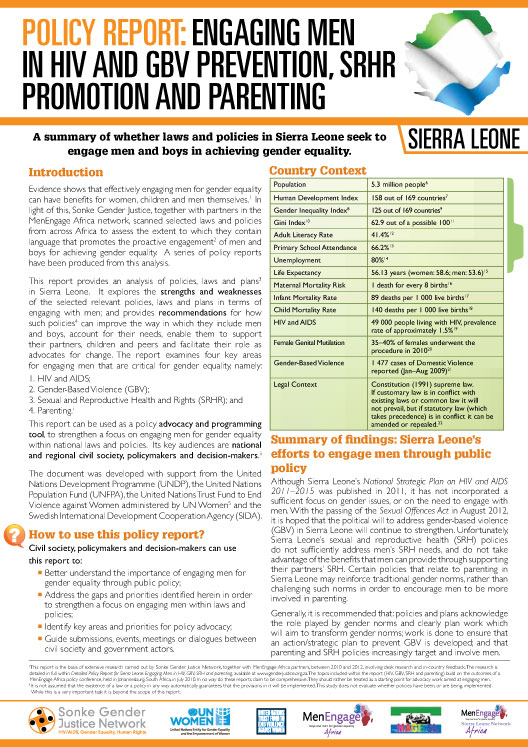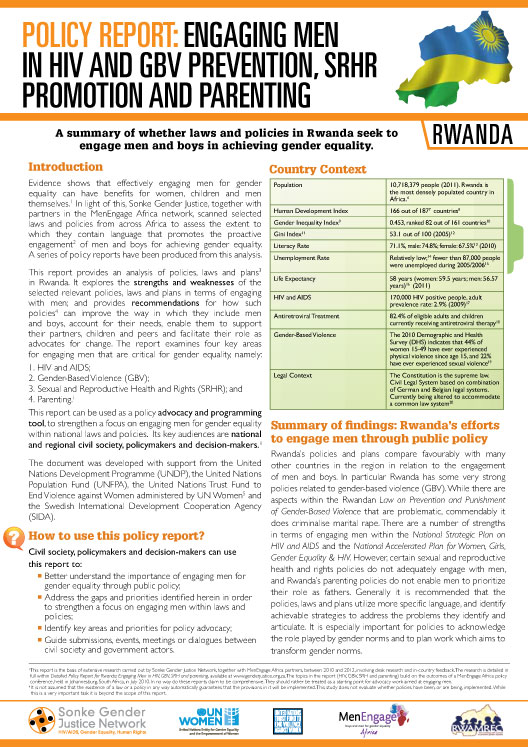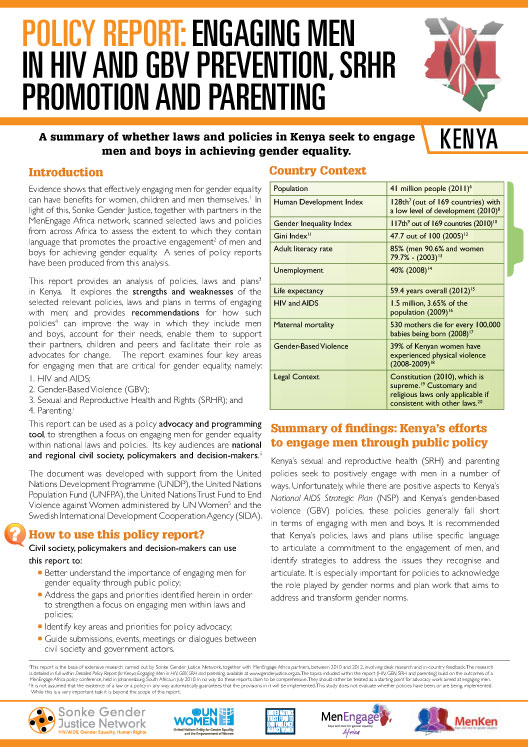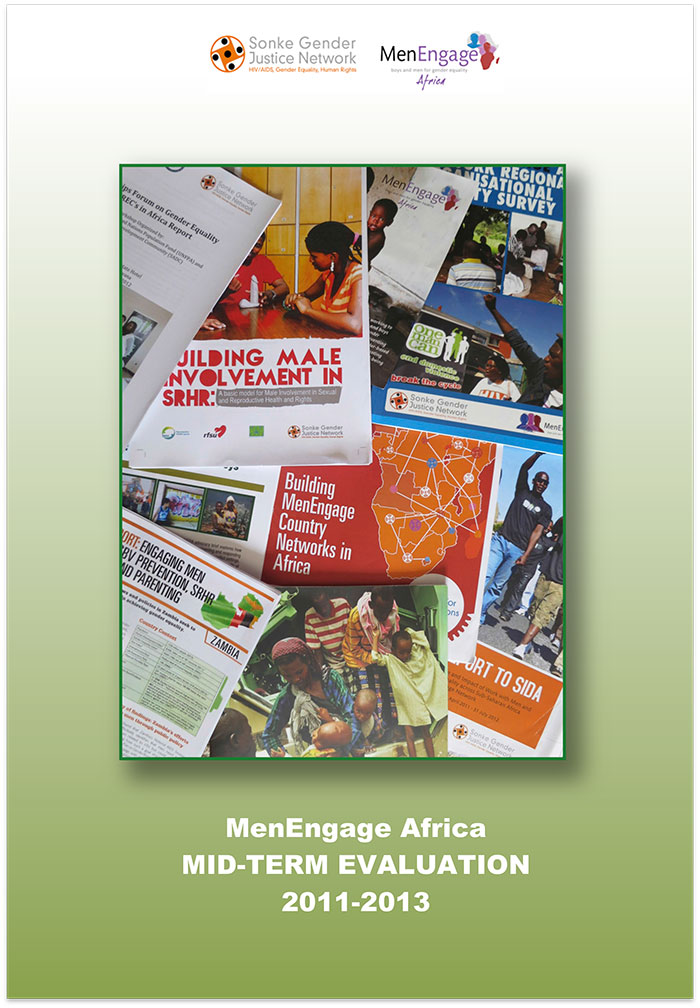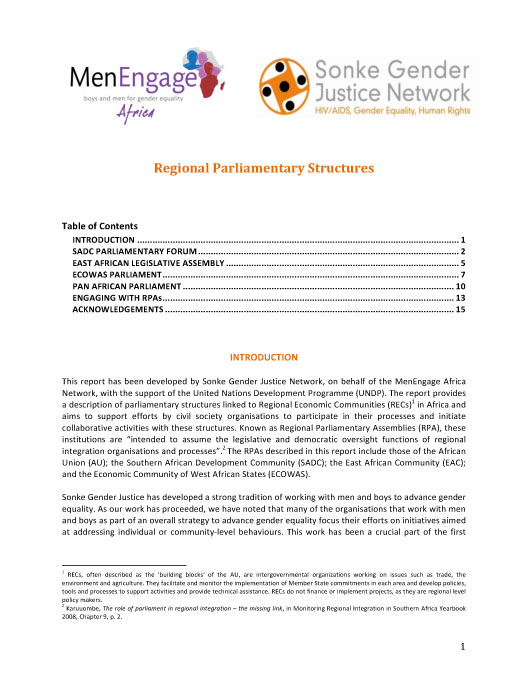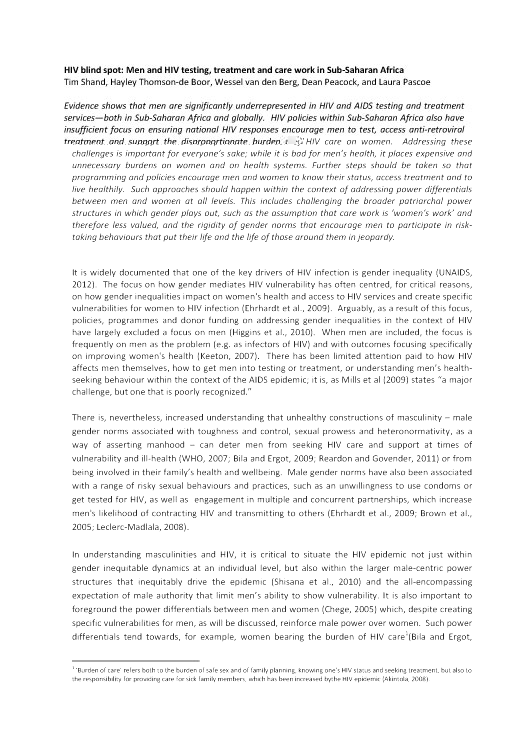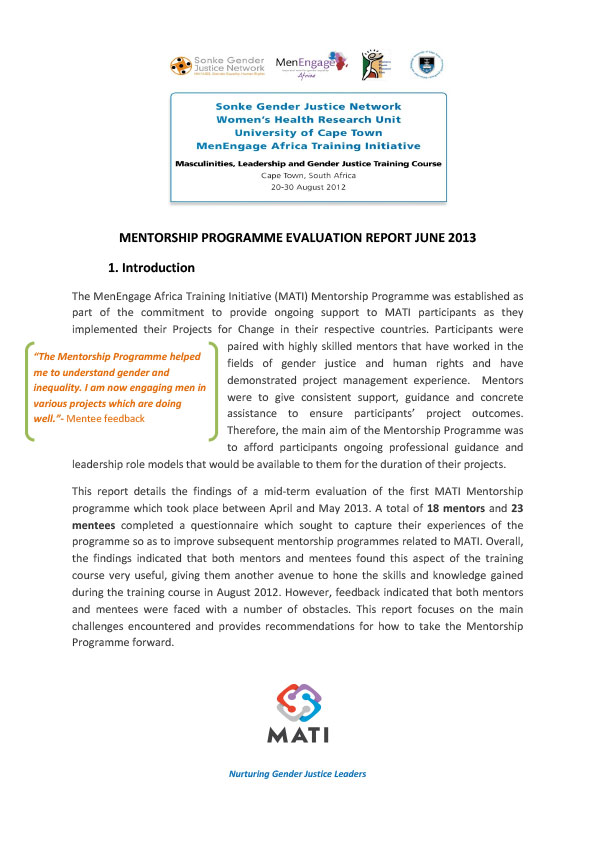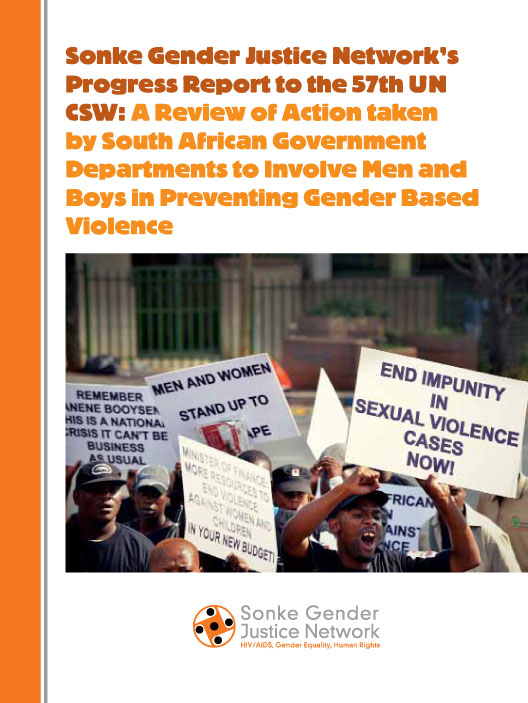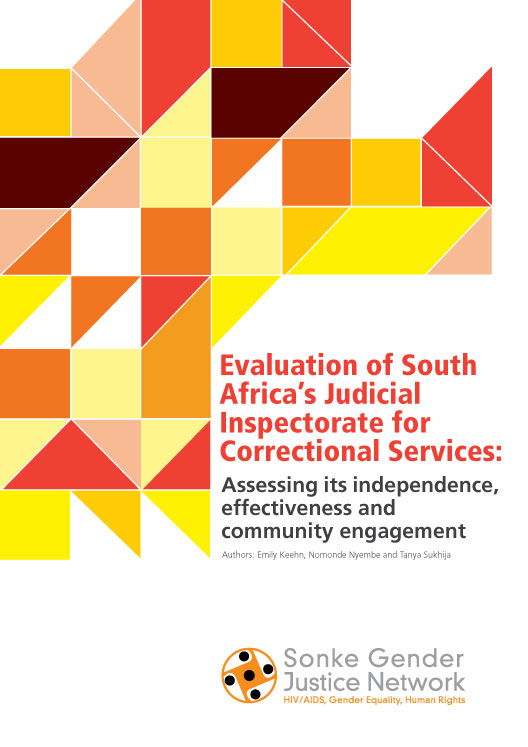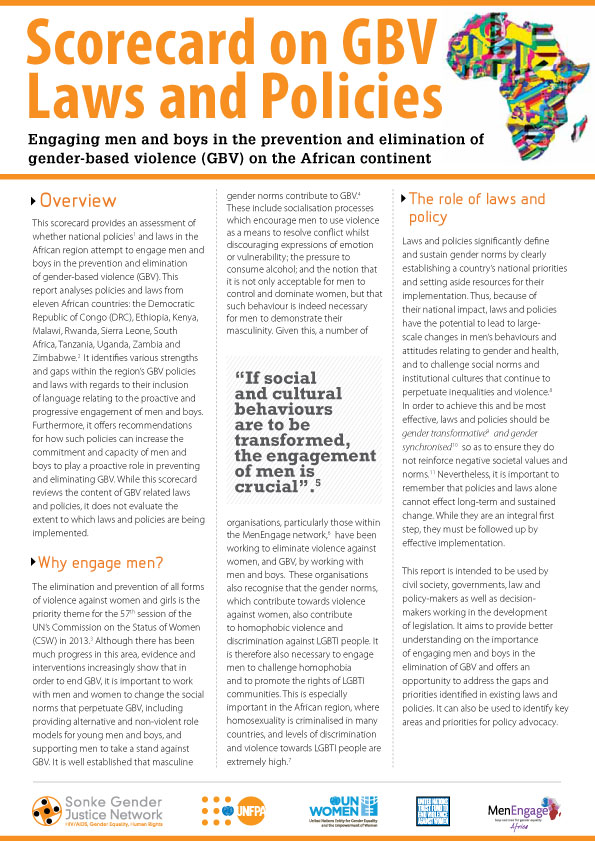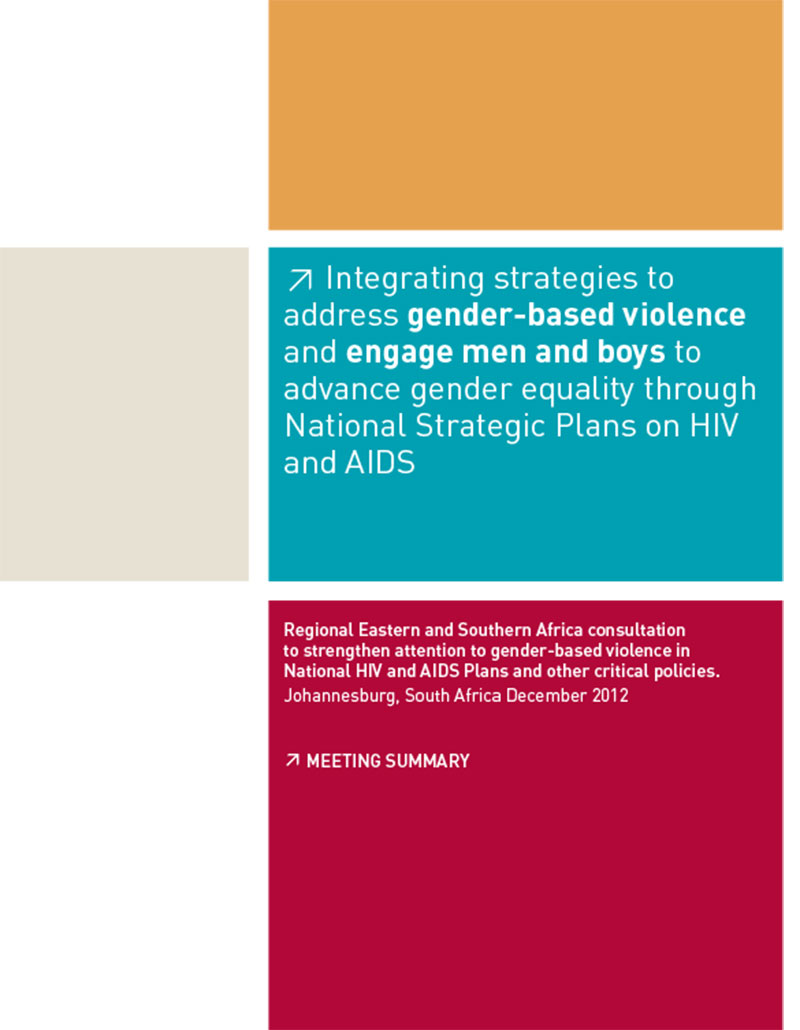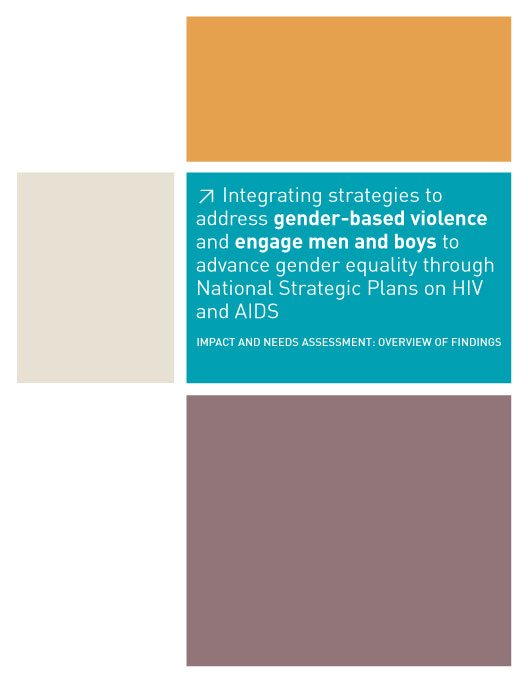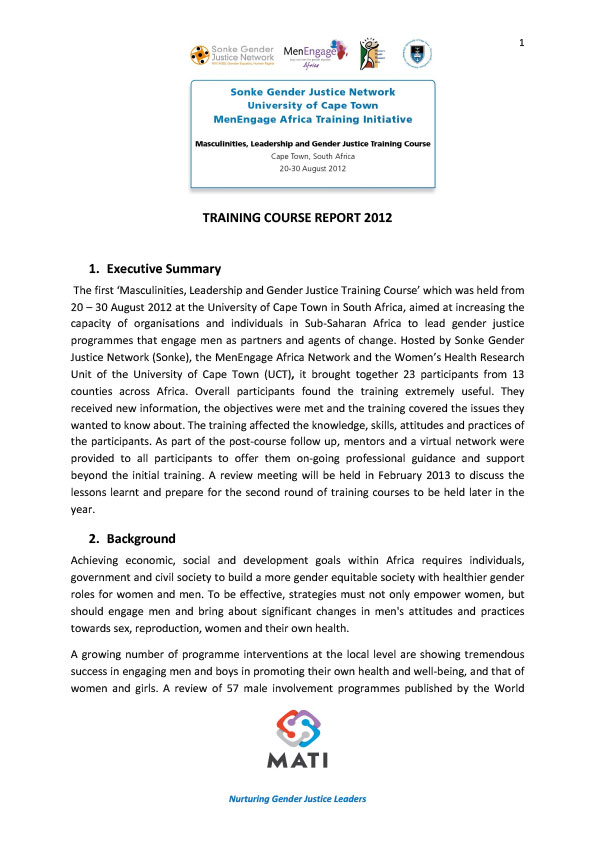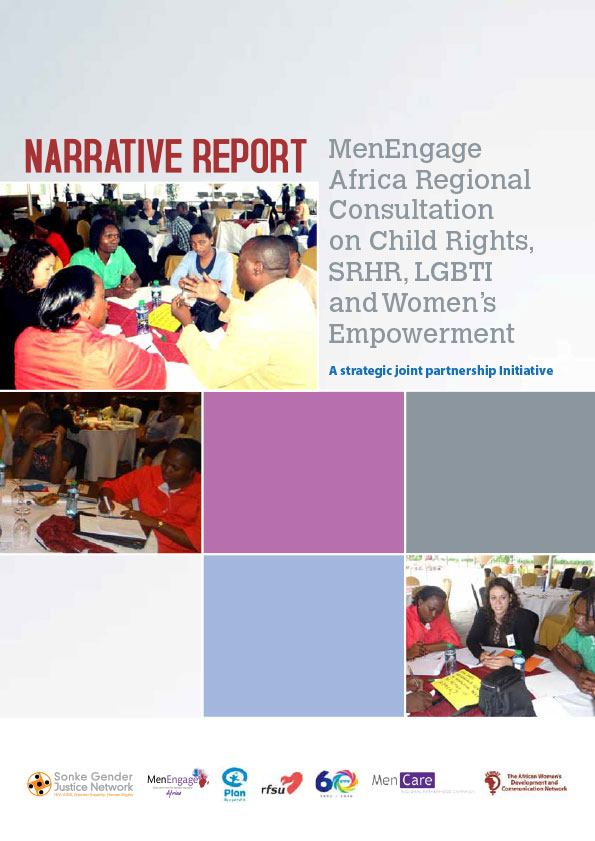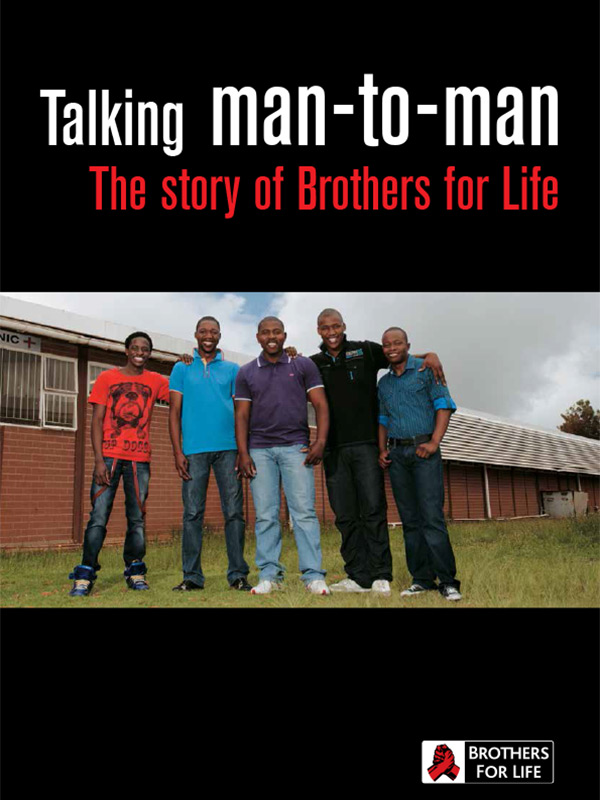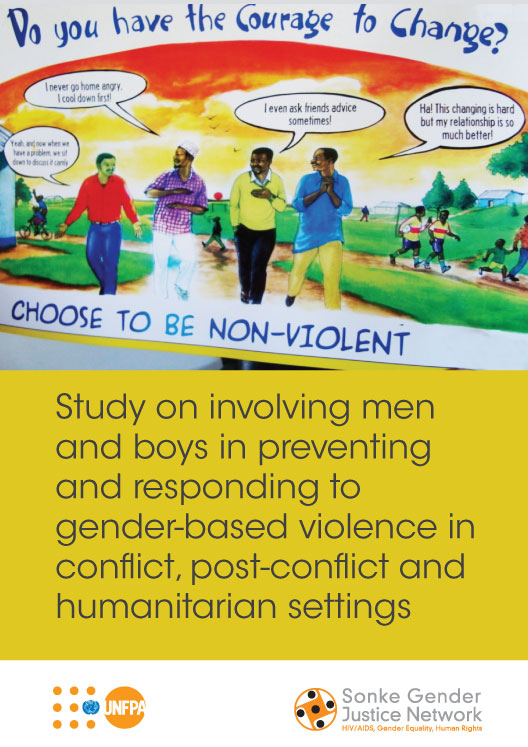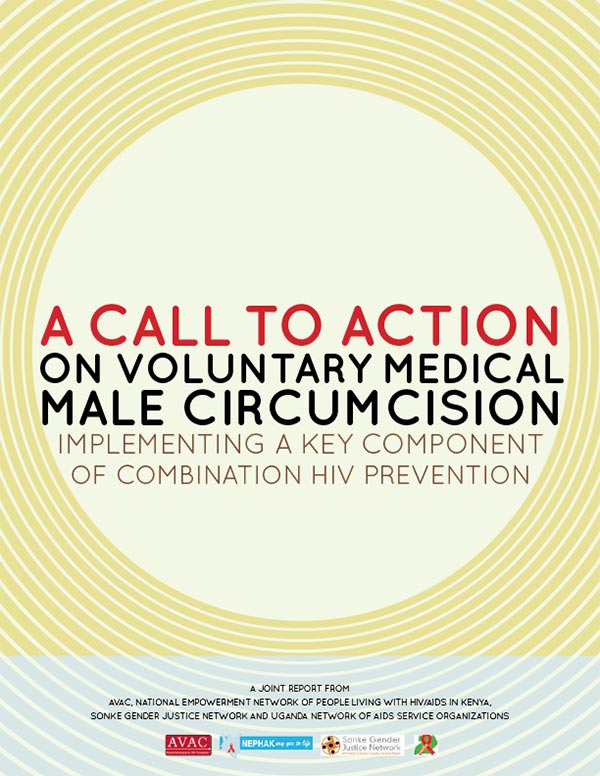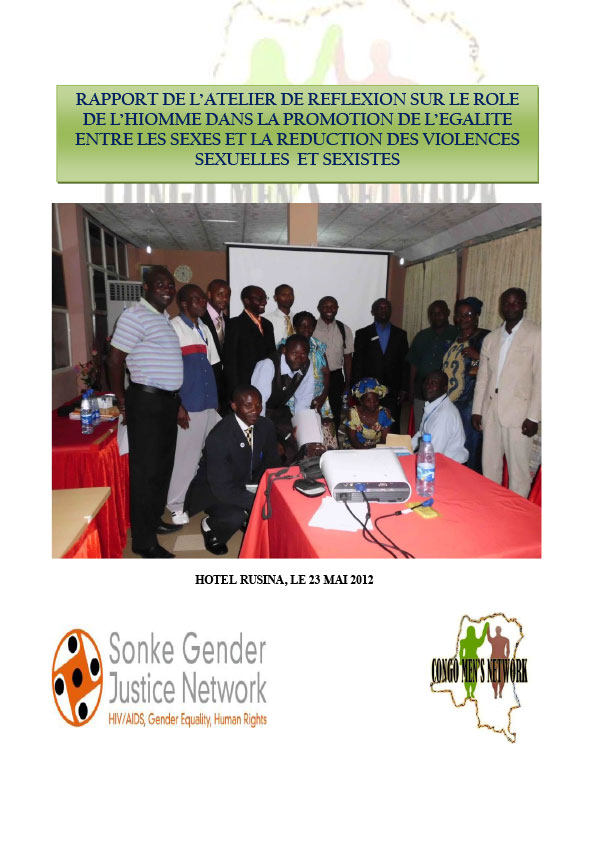The United Nations Population Fund (UNFPA) and Sonke Gender Justice Network undertook a study on involving men and boys in preventing and responding to gender-based violence (GBV) in conflict, post-conflict and humanitarian settings. The study aimed to document good practice in strengthening programming in this field. The upheaval that individuals and communities experience as a result of these particular settings (conflict, post-conflict and humanitarian crisis settings) gives rise to unique challenges, such as an exacerbation of power imbalances between men and women.
The findings of this study reveal that men and boys are sometimes included in GBV programming in conflict, post-conflict and humanitarian settings only when programmes that target and empower women result in men feeling excluded, resulting in an increase in GBV. It is therefore necessary that there are concurrent strategies for involving women, men, girls and boys where the focus for men and boys is to deconstruct masculinities and the focus for women and girls is empowerment. The study also came to the conclusion that perpetrators of GBV and youth are unfortunately often neglected in GBV prevention and response programmes even when they represent key target groups in conflict, post-conflict and humanitarian settings.
In order to address the underlying causes of GBV in stable and unstable settings, intervention programmes need to be gender transformative, meaning that they promote equitable relationships, challenge harmful and/or rigid gender norms and change gender relations.
Many programmes are struggling to achieve gender transformation. However, a good starting point is to build on community participation to carry out and manage GBV prevention and response programmes, and to base these programmes on the lived experiences of the participants. Nevertheless, the study does indicate some progress in gender transformation. Some informants express that GBV has decreased, that men increasingly solve conflicts through dialogue and that work towards changing gender norms has allowed men to take on traditionally female tasks and roles, thus promoting gender transformation.
Furthermore, conflict, post-conflict and humanitarian settings provide a chance to re-negotiate attitudes, behaviours and values. Engaging men and boys in a gender transformative way in these settings is therefore an important window of opportunity to deal with GBV across the continent.

